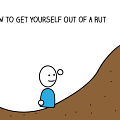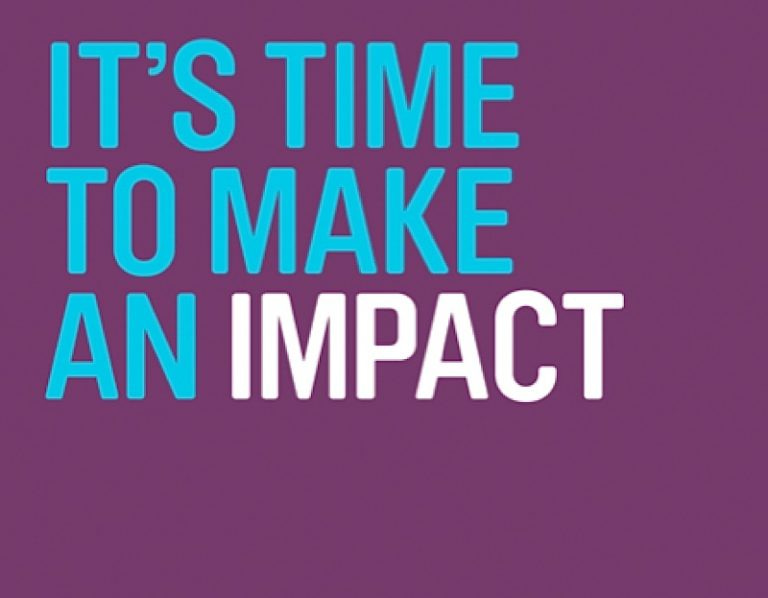As a Manager or Leader, While pursuing Goals or Projects, or selecting a Goal, or Managing tasks and priorities, you are most likely to get stuck at a certain point.
There are many such situations where you will find yourself stuck and unable to move forward …
And you’re not alone.
It happens to the best of us at some or the other point now and then.
Feeling stuck While working on an important project/Goal or choosing the next goal can be a stressful, frustrating, and demoralising experience.
It causes a lot of anxiety and you’re sucked into a downward spiral.
You doubt yourself and your abilities.
You feel overwhelmed and out of control.
Whether it’s in your career, relationships, or personal growth, being unable to move forward can be overwhelming and depressing.
This post aims to enlighten you why it is important to acknowledge when you’re stuck , identify the symptoms of being stuck, How it can cost you mentally, emotionally, and physically and hamper your success in your career and other areas of life.
Knowing this will help you to become more self-aware so that you can find ways to get out of it quickly and move forward faster.
If you’ve been feeling stagnant and unsure of what steps to take next, it may be time to take a closer look at the signs that indicate you’re completely and utterly stuck and need to get out of it quickly.
Because you know what, when you’re stuck, you will be feeling low and will never be at your best.
And trust me it will impact all areas of your life, your mental and emotional health, your performance in the workplace, your relationship in the workplace and at home, the performance of your team and the workplace environment, and it will also impact chances of future career growth if you continue with this for long.
Let’s explore the seven warning signs that suggest you’re in a state of stagnation ,how it can impact all areas of your life and career and provide guidance on how to break free from this rut.
So, if you’re ready to regain control of your life and start making progress again, keep reading!
Would you like to Get out of Stuck Quickly And Avoid Stress, Feel more Confident, Save More Time?
Then Grab THE MOVE FORWARD TEMPLATE Just NOW!

Let us start with the Importance of recognising when you’re stuck.
THE IMPORTANCE OF RECOGNIZING WHEN YOU’RE STUCK
As a Manager or Leader, recognizing when you’re stuck is crucial for your personal growth and overall well-being.
Ignoring or denying the signs of being stuck can lead to prolonged periods of stagnation, procrastination, indecisiveness and ultimately hinder your progress in career and life.
Here are a few reasons why it is important to acknowledge when you’re stuck:
1.Self-awareness: Recognizing that you’re stuck is an act of self-awareness.
It means you are in tune with your emotions, thoughts, and overall state of being.
This self-awareness allows you to take a step back and evaluate your current situation, making it easier to identify the underlying causes of your stagnation.
2.Taking responsibility: Accepting that you’re stuck is taking responsibility for your own life.
It means acknowledging that you have the power to make changes and overcome obstacles.
By recognizing that you are stuck, you are not placing blame on external factors or other people but are instead taking ownership of your circumstances.
3.Motivation for change: Once you acknowledge that you’re stuck, it can serve as a powerful motivator for change.
Feeling dissatisfied and frustrated with your current situation can create a strong desire to break free and move forward.
This motivation can propel you to take the necessary actions to make positive changes in your life.
4.Seeking help and support: Recognizing that you’re stuck opens the door for seeking help and support.
It can be difficult to navigate challenging situations alone, and reaching out to others for guidance and assistance can provide valuable insights and perspectives.
Whether it’s seeking therapy, joining a support group, or seeking advice from a mentor, or taking the help of a coach, acknowledging that you are stuck can help you find the support you need.
5.Growth and personal development: Being stuck is an opportunity for growth and personal development.
It presents a chance to reflect on your values, goals, and aspirations, and reassess what is truly important to you.
By recognizing that you are stuck, you can embark on a journey of self-discovery and explore new possibilities for growth and fulfilment.
In conclusion, recognizing when you’re stuck is essential for your personal growth and overall well-being.
It allows for self-awareness, taking responsibility, finding motivation for change, seeking help and support, and fostering growth and personal development.
Embrace the signs of being stuck as opportunities for growth and use them as stepping stones to create positive change in your life.
Spending too much time and energy on every little detail to do something “perfectly” may just slow down your progress.
This can also make you feel frustrated, or like you’re not getting anywhere in life. To get unstuck, you may want to leave perfectionism behind.
“Sometimes, undue guilt or excessive concern about somebody else’s opinion of how we should live our lives keeps us from living authentically and leads to feeling stuck. We need to live our lives for ourselves, not for others,” Marter explains.
HERE ARE 3 EXAMPLES OF STUCK AND FORWARD THOUGHTS
This table shows 3 examples of stuck and forward moving thoughts so that you can use them to identify your language when you’re stuck .
STUCK THOUGHT |
FORWARD THOUGHT |
This job I am applying for requires 5 years of experience and a clinical residency. I won’t get the job. I am not going to apply. |
I have experience working for 3 years, and have valuable knowledge to share. I can learn anything and can adapt to any situation. |
I know that I am working extra, not getting paid anymore-but if I say No to my Boss, it will leave a negative impression. Reputation is everything. |
My Boss and I are on the same side, and both want to succeed. I will only work for a company that values my opinion and well being. |
Everyone at work is panicking over the recent change in leadership. I agree, everything is going downhill. |
I am responsible for how I invest my time and energy in conversation. I will participate in positive conversations and keep working hard. I will share my concerns or fears with the leadership team. |
Now let us explore the 7 signs that you’re stuck:
7 WARNING SIGNS YOU’RE STUCK .
Sign #1: Feeling Unfulfilled and Uninspired
The first alarming sign that you’re completely and utterly stuck is feeling unfulfilled and uninspired.
This can manifest in various ways, including:
1.Lack of passion: You no longer feel excited or passionate about the activities or endeavours that used to bring you joy. The things that once gave you a sense of fulfilment now feel mundane and uninteresting.
2.Loss of motivation: You find it difficult to find the motivation to pursue your goals and dreams.
The drive and ambition that once fueled your actions have diminished, leaving you feeling stuck in a state of inertia.
3.Sense of emptiness: You have a lingering feeling of emptiness or dissatisfaction as if something is missing from your life.
Despite outward success or accomplishments, you still feel a void that cannot be filled.
4.Creative block: If you’re a creative individual, you may experience a creative block, where ideas and inspiration no longer flow freely.
You struggle to come up with new and innovative ideas, and your creative output suffers as a result.
5.Lack of purpose: You feel like you’re just going through the motions without a clear sense of purpose or direction.
You may question the meaning and significance of your actions, leading to feelings of confusion and apathy.
Feeling unfulfilled and uninspired is a clear indication that something is amiss in your life.
It’s important not to ignore these feelings and instead use them as a catalyst for change.
By acknowledging and addressing these signs, you can begin to explore new possibilities, rediscover your passions, and reignite your sense of purpose.
Remember that it’s never too late to make positive changes and pursue a fulfilling life.
Sign #2: Lack of Motivation and Drive
One of the alarming signs that you’re completely and utterly stuck is a lack of motivation and drive.
When you lack motivation, it can be incredibly challenging to find the energy and enthusiasm to pursue your goals and aspirations.
Here are some common indicators of a lack of motivation and drive:
1.Procrastination: You find yourself constantly putting off tasks and responsibilities, often opting for distractions or idle activities instead.
The thought of starting or completing a task feels overwhelming and daunting.
2.Loss of Interest: Activities or hobbies that once brought you joy and excitement no longer hold the same appeal.
You may find yourself feeling indifferent or even bored when engaging in things you used to enjoy.
3.Lack of Initiative: You struggle to take initiative or actively seek out new opportunities or challenges. Instead, you may prefer to stay in your comfort zone and avoid any sort of risk or effort.
4.Difficulty Setting and Achieving Goals: Setting goals becomes a struggle, and even when you do manage to set them, you lack the drive and determination to follow through and achieve them.
Your aspirations may feel out of reach or not worth pursuing.
5.Feelings of Apathy: Apathy can creep in when you feel unmotivated and lack drive.
You may feel indifferent or unaffected by the outcome of your actions, leading to a sense of detachment and disengagement from your own life.
Experiencing a lack of motivation and drive is a clear sign that something is not working in your life.
It is important to acknowledge these feelings and take steps to address them.
Start by identifying any underlying causes or barriers that may be hindering your motivation.
This could involve exploring any personal or external factors that may be influencing your mindset and overall sense of drive.
Additionally, consider seeking support from trusted friends, family, or professionals who can provide guidance and encouragement as you work towards reclaiming your motivation and reigniting your passion.
Remember, it’s never too late to make positive changes and rediscover your sense of purpose.
Sign #3: Repeating the same patterns and making little progress
One of the alarming signs that you’re completely and utterly stuck is when you find yourself repeating the same patterns and making little to no progress in your personal or professional life.
This can be incredibly frustrating and demotivating, as it feels like you’re constantly going in circles without moving forward.
Here are some common indicators of repeating patterns and lack of progress:
1.Lack of Growth: Despite your efforts and attempts to improve, you notice little to no growth or development in your skills, knowledge, or abilities.
You may feel stuck in the same old routine or stuck at a certain level of expertise, unable to break through to the next level.
2.Getting Stuck in Comfort Zones: You find yourself sticking to what is familiar and comfortable, avoiding new challenges or opportunities for growth.
Stepping outside of your comfort zone can be intimidating, but it is necessary for personal and professional development.
3.Repeating Mistakes: Instead of learning from past mistakes, you keep making the same errors or facing the same challenges over and over again.
This can be a sign that you’re not actively reflecting on your experiences and taking action to improve or make changes.
4.Lack of Adaptability: When faced with change or adversity, you struggle to adapt and find creative solutions.
Instead, you resort to the same old approaches or become paralyzed by fear of the unknown.
5.Feeling Stuck in a Rut: You feel like you’re in a constant state of inertia, lacking the inspiration or motivation to break free from the repetitive patterns.
This can lead to a sense of dissatisfaction and a loss of enthusiasm for life.
Recognizing these signs is the first step towards making positive changes and breaking free from the cycle of repeating patterns.
It’s important to reflect on why you’re stuck and identify any underlying beliefs, fears, or habits that may be holding you back.
Seek support from trusted friends, mentors, or professionals who can provide guidance and help you develop strategies for progress.
Remember, change is possible, and with the right mindset and actions, you can break free from the patterns that are keeping you stuck and start making meaningful progress toward your goals and aspirations.
Sign #4: Resistance to change and fear of stepping outside your comfort zone
One of the alarming signs that you’re completely and utterly stuck is when you find yourself resisting change and feeling fearful of stepping outside your comfort zone.
Change is an inevitable part of life, and embracing it is crucial for personal and professional growth.
Here are some indicators of resistance to change and fear of stepping outside your comfort zone:
1.Clinging to Familiarity: You prefer to stick to what is familiar and known, avoiding new experiences or opportunities for growth.
Whether it’s in your personal life or your career, you find comfort in routines and familiarity, even if they no longer serve you.
2.Fear of the Unknown: The thought of venturing into uncharted territory fills you with anxiety and apprehension.
You worry about the risks involved and the potential for failure, which holds you back from taking necessary risks and exploring new possibilities.
3.Making Excuses: Instead of embracing change, you find yourself making excuses to avoid taking action.
You may come up with various justifications for why you can’t make a change or try something new, such as a lack of time, resources, or skills.
4.Overthinking and Analysis Paralysis: When confronted with the need for change, you tend to overthink and overanalyze the situation, leading to analysis paralysis.
Rather than taking decisive action, you get stuck in a loop of indecision, fearing making the wrong choice.
5.Lack of Adaptability: You struggle to adapt to new circumstances or navigate through challenges effectively.
Instead of seeking creative solutions and embracing change, you prefer to remain stagnant and resist any disruptions to your routine.
Overcoming resistance to change and fear of stepping outside your comfort zone is essential for personal and professional growth.
Here are some strategies to help you break free from these patterns:
-
Challenge your limiting beliefs: Identify the beliefs that are holding you back and question their validity. Replace negative beliefs with positive, empowering ones that encourage growth and change.
-
Start small: Rather than diving headfirst into unfamiliar territory, take small steps outside your comfort zone. Gradually expose yourself to new experiences and challenges, building your confidence along the way.
-
Seek support: Surround yourself with a supportive network of friends, mentors, or coaches who can provide guidance and encouragement. Having someone to hold you accountable and offer perspective can help you navigate through change more effectively.
-
Embrace a growth mindset: Adopt a mindset that sees challenges as opportunities for growth and learning.
Embrace the idea that change is necessary for personal and professional development, and view stepping outside your comfort zone as a chance to expand your horizons.
By recognizing and addressing your resistance to change and fear of stepping outside your comfort zone, you can break free from the cycle of feeling stuck and start embracing new opportunities for growth and fulfillment.
Remember, change can be uncomfortable, but it often leads to personal and professional breakthroughs that can propel you forward in life.
Sign #5: Feeling Overwhelmed and Unable to Make Decisions
Another alarming sign that you’re completely and utterly stuck is when you find yourself feeling overwhelmed and unable to make decisions.
This can manifest in several ways and can hinder your productivity and progress.
Here are some indicators of feeling overwhelmed and unable to make decisions:
1.Procrastination: You find yourself constantly putting off important tasks and decisions, often because you feel overwhelmed by the sheer number of options or the complexity of the situation.
As a result, things pile up and become even more overwhelming.
2.Indecisiveness: Even when faced with relatively simple choices, you struggle to make a decision.
The fear of making the wrong choice or missing out on something better paralyzes you, leaving you unable to move forward.
3.Analysis Paralysis: Similar to overthinking mentioned in the previous section, you get stuck in a cycle of analysis paralysis.
You may spend excessive amounts of time researching, gathering information, and weighing pros and cons, but never actually take action.
4.Lack of Focus and Clarity: Feeling overwhelmed often leads to a lack of focus and clarity.
Your mind becomes scattered, making it difficult to prioritize tasks and make progress.
This can result in a constant feeling of being overwhelmed and spinning in circles.
5.Decision Fatigue: The constant pressure of making decisions, big or small, wears you down mentally and emotionally.
As a result, you may find yourself avoiding decision-making altogether, opting instead to go with the flow or let others make decisions for you.
Overcoming feeling overwhelmed and unable to make decisions is crucial for regaining control of your life and moving forward.
Here are some strategies to help you break free from these patterns:
-
Break Tasks Down: When faced with a daunting task or decision, break it down into smaller, more manageable steps.
Focus on completing one step at a time, which can help alleviate feelings of overwhelm.
-
Set Priorities: Identify your most important tasks and make a list in order of importance.
By prioritizing your tasks, you can better allocate your time and energy, reducing the feeling of being overwhelmed.
-
Seek support: Don’t be afraid to reach out for help or guidance. Discussing your challenges with a trusted friend, mentor, therapist or coach can provide valuable insights and support in overcoming feelings of overwhelm.
-
Practice self-care: Taking care of your physical and mental well-being is crucial when dealing with overwhelm.
Prioritize activities that promote relaxation and reduce stress, such as exercise, meditation, and spending time in nature.
5.Develop decision-making skills: Building your decision-making skills can help you become more confident in making choices.
Start by making small decisions quickly and gradually work your way up to more significant decisions.
Remember, feeling overwhelmed and unable to make decisions is a common experience, but it doesn’t have to define your life.
By implementing these strategies and seeking support when needed, you can regain control and start making progress toward your goals.
Sign #6: Strained Relationships and Conflicts in various Areas of Life
One of the alarming signs that you’re completely and utterly stuck is when you start experiencing strained relationships and conflicts in various areas of your life.
When you feel stuck, it can affect your emotional well-being, leading to tension and misunderstandings in your relationships.
Here are some indicators of strained relationships and conflicts:
-
Increased Arguments: You find yourself getting into more frequent arguments with friends, family members, or colleagues. These conflicts may arise from a place of frustration, resentment, or feeling misunderstood.
-
Lack of Communication: You struggle to effectively communicate your thoughts and feelings, leading to misunderstandings and misinterpretations. This communication breakdown can strain relationships as others may feel confused or disconnected from you.
-
Withdrawal from Social Interactions: Feeling stuck can often result in withdrawing from social interactions and isolating yourself from others. This withdrawal can lead to a sense of loneliness and further strain on relationships.
-
Neglecting Personal Relationships: When you’re stuck, it becomes challenging to invest time and energy into maintaining personal relationships. You may unintentionally neglect your loved ones, which can cause strain and distance.
-
Conflict Avoidance: Instead of addressing conflicts head-on, you may avoid confrontation altogether. This avoidance can lead to unresolved issues, resentment, and further strain on relationships.
Overcoming strained relationships and conflicts is essential for your mental and emotional well-being.
Here are some strategies to help you navigate these challenges:
-
Practice active listening: Improve your communication skills by actively listening to others without interrupting or rushing to respond.
Show empathy and understanding to foster healthy conversations and resolve conflicts peacefully.
-
Express your feelings assertively: Instead of bottling up your emotions, learn to express your feelings assertively and respectfully. Use “I” statements to communicate how certain situations or behaviors affect you, promoting open dialogue.
-
Seek mediation or counseling: If conflicts persist or become too challenging to resolve independently, consider seeking mediation or counseling. A neutral third party can provide guidance and facilitate constructive communication.
-
Set boundaries: Establish clear boundaries with others to protect your well-being and prevent conflicts from arising. Communicate your limits and expectations, and be willing to compromise when necessary.
5.Prioritise self-reflection and personal growth: Take the time to reflect on your actions and behaviors. Identify areas where you may contribute to conflicts and work on personal growth and development to improve your relationships.
Remember, strained relationships and conflicts are common challenges when feeling stuck, but they can be overcome.
By implementing these strategies and seeking support when needed, you can rebuild and strengthen your relationships, creating a healthier and more fulfilling life.
Sign #7: Ignoring or Rationalising the Signs and Refusing to Seek Help
One of the most alarming signs that you’re completely and utterly stuck is when you find yourself ignoring or rationalising the signs of being stuck and refusing to seek help.
This can be a dangerous mindset that prevents you from making positive changes and seeking the support you need.
Here are some indicators of ignoring or rationalising the signs:
-
Denial: You convince yourself that everything is fine and that you don’t need help or intervention. You may dismiss the signs as temporary or insignificant, refusing to acknowledge the impact they have on your life.
-
Minimization: You downplay the seriousness of the signs, making excuses or justifications for your current situation. This can be a defence mechanism that allows you to avoid facing uncomfortable truths.
-
Fear of judgement: You worry about how others will perceive you if you admit to being stuck or needing help. This fear of judgement can prevent you from reaching out and seeking the support you require.
-
Self-blame: You internalise the belief that being stuck is your fault, leading to feelings of shame and guilt. This self-blame can fuel a cycle of negative thoughts and emotions that further trap you in your situation.
-
Lack of awareness: You may not fully comprehend the extent of being stuck or the impact it is having on your life. This lack of awareness can make it difficult to recognize the signs and take action.
It is crucial to address and overcome the tendency to ignore or rationalise the signs of being stuck.
Here are some strategies to help you break free from this mindset and seek the help you need:
-
Practice self-reflection: Take the time to reflect on your current situation and the signs that indicate you’re stuck.
Be honest with yourself and try to identify any patterns or underlying causes that contribute to your condition.
-
Challenge your beliefs: Question any beliefs or thoughts that prevent you from seeking help. Challenge the notion that asking for assistance is a sign of weakness and remind yourself that reaching out is a courageous and proactive step towards change.
-
Seek support: Reach out to trusted friends, family members, or professionals who can offer guidance and support. Surround yourself with individuals who can provide a fresh perspective and help you develop a plan for moving forward.
-
Educate yourself: Learn about the resources and options available to you for seeking help. Research therapy, coaching, support groups, or other interventions that align with your needs and preferences.
-
Take small steps: Begin by taking small steps towards breaking free from the mindset of ignoring or rationalising the signs. Start with seeking information, reaching out to someone you trust, or exploring self-help resources.
Remember, refusing to acknowledge the signs and seeking help can prolong your state of being stuck. By recognizing the importance of addressing the signs and taking action, you can begin the journey toward a more fulfilling and empowered life.
Having said about the symptoms of stuck , let me now throw some light on the negative impact of remaining stuck .
1 Mentally it causes self doubt and indecisiveness . You feel procrastinating and unconfident. You do not know which direction to go into.
2.Emotionally you are not happy and excited about anything. Thoughts of sadness, anxiety and unworthiness crop up making you feel dull.
3 Physically, you might be burnt out which is harmful for your nervous system. You will not be performing your best and it will show.
4 You will be reacting to everything. This will weaken your relationships with others and your team members. You will not be able to give them any sense of direction.
5.Procrastination and indecisiveness will slow down the progress of a project and demotivate your team members.
6 If you are confident and doubt your abilities , your team members will also be influenced by your state. They may feel uncertain ,unengaged and lack a sense of direction. They will feel hopeless and lose trust in you as their leader.
7.If you remain stuck in a situation for long, it will hamper the progress of the organisation as a whole ,as i have mentioned in point no 5 and 6.
8 .Your boss, employers and your employees will have a negative outlook towards you which will impact your future career growth.
So you see how remaining stuck can be detrimental for your career and life .
CONCLUSION
In conclusion as I mentioned in the beginning of the post, I will be sharing why it is important to acknowledge you’re stuck, symptoms of being stuck and how being stuck can create a negative impact on your team and career.
I hope you have understood the negative impact of remaining stuck and the symptoms of being stuck. I hope you will be more alert in future should you find yourself in such a situation as a Manager or leader.
But the best thing to know is that you can easily overcome it.
We all get stuck in a situation and go through negative feelings and are upset.
But what is important to know is that it is just a feeling and you can get out of it quickly by being mentally alert and agile.
Today’s business world is very unpredictable and dynamic. Leaders and Managers need to be more self aware and agile, because they have to make quick decisions.
So to help you even further, here is a post –15 BRILLIANT TIPS TO GET OUT STUCK AND MOVE FORWARD QUICKLY.
Which sign resonates with you? What will you do about it?
Are you having any other symptoms apart from these? Please share your thoughts below.
Have an awesome day !
Babita Sharma
Leadership Coach
www.leadwithpassion.co.in
P.S- Please share the post and help someone today!
P.P.S-If you find yourself stuck and are experiencing any of the above symptoms and need professional help, please schedule a free discovery session HERE.
RELATED REFERENCES







